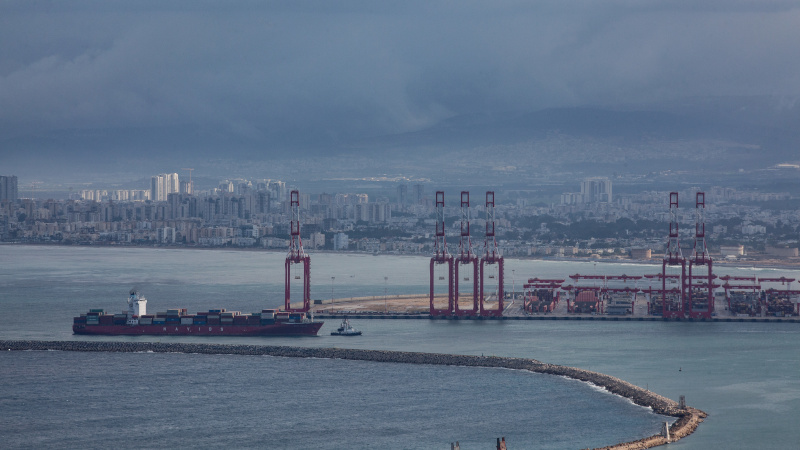At least eight ships attacked amid conflict in Middle East
Two global shipping majors suspended their vessels’ passage through the Red Sea on Friday: Denmark’s Maersk and Germany’s Hapag-Lloyd.
Then on Saturday, the Italian-Swiss giant MSC and France’s CMA CGM also suspended the travel of their vessels through the Red Sea strait.
Since conflict first broke out between Israel and Hamas in early October, Yemen’s rebel Ansar Allah movement, known as the Houthis, have conducted multiple missile and drone attacks on commercial ships in the Red Sea.
The Houthis recently announced that they were targeting vessels near the strategic Bab al-Mandab strait as a way to put pressure on Israel. In response, shipping majors paused the passage of their vessels. On Thursday a Maersk Gibraltar vessel was attacked followed by a second attack on a container ship on Friday. The company has ordered all vessels to pause their passage for the time being.
“We are deeply concerned about the highly escalated security situation in the southern Red Sea and Gulf of Aden. The recent attacks on commercial vessels in the area are alarming and pose a significant threat to the safety and security of seafarers,” Maersk said in a statement.
Meanwhile, Hapag-Lloyd said they would be suspending traffic until Monday. Their vessel, Al Jasrah, was attacked on Friday.
“It’s very worrisome because ships heading to the Suez have to pass through the strait. We are stopping some ships, but there is no general rule yet, though this could change,” Nils Haupt, the company spokesperson, told a New York City journal.
MSC said one of its container vessels had been targeted in the Red Sea on Friday. While no injuries have been reported, the ship suffered fire damage.
The Red Sea is an important trade route that extends southeastward from Suez, Egypt, to the Indian Ocean through the Bab el Mandeb sound and the Gulf of Aden. Linking Asia to Europe, it is responsible for the 10% to 12% of global trades that pass through it annually, including 30% of all global container shipments.
“The Red Sea could become a more dangerous route, but in proportion with the increasing tension between Israel and Hamas on one side at a local level and also at a regional level between Iranian allies from Lebanon and Syria, Iraq and Israel itself and the US military bases in Syria and Iraq. Everything is connected,” Dr. Lorenzo Trombetta, a Beirut-based scholar and analyst specializing on the Middle East, told Sputnik in early December following an attack.
“Both of the cargo ships targeted by the Houthi in November and a few days ago were not Israeli-flagged ships, but they were owned by Israeli businessmen. That was the aim of the direct target of the pro-Iranian government.”
On Saturday, a US destroyer shot down more than a dozen drones in the Red Sea that were launched by Houthi-controlled areas in Yemen, according to the US Central Command. The UK government also said it had taken out a suspected drone attack in the area using one of their destroyers.
Thus far, eight ships have come under attack by the Houthis. On Friday, the International Chamber of Shipping (ICS) said it “deplores the actions of the Houthis” and called for an immediate cessation of attacks.
NATO Responds to Alex Jones and Jack Posobiec Revealing Globalists’ Plan for WWIII With Russia


